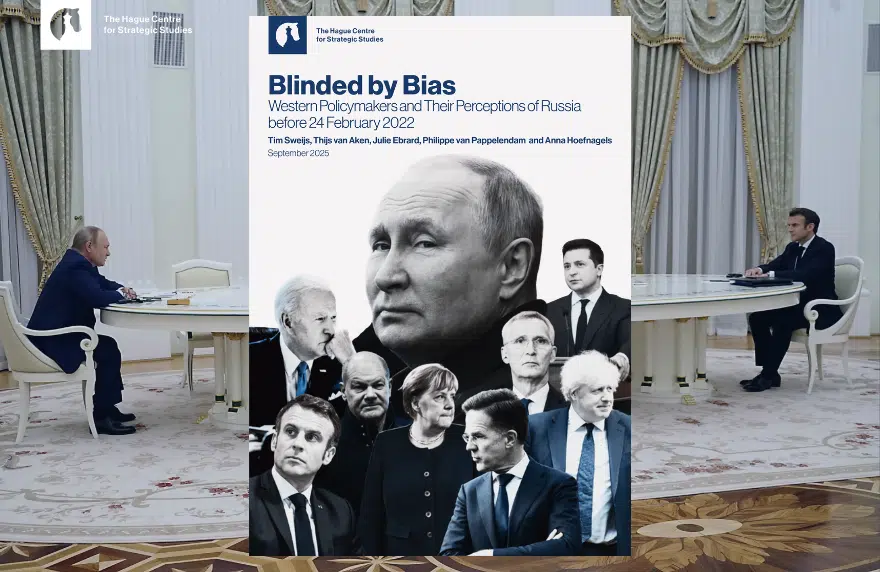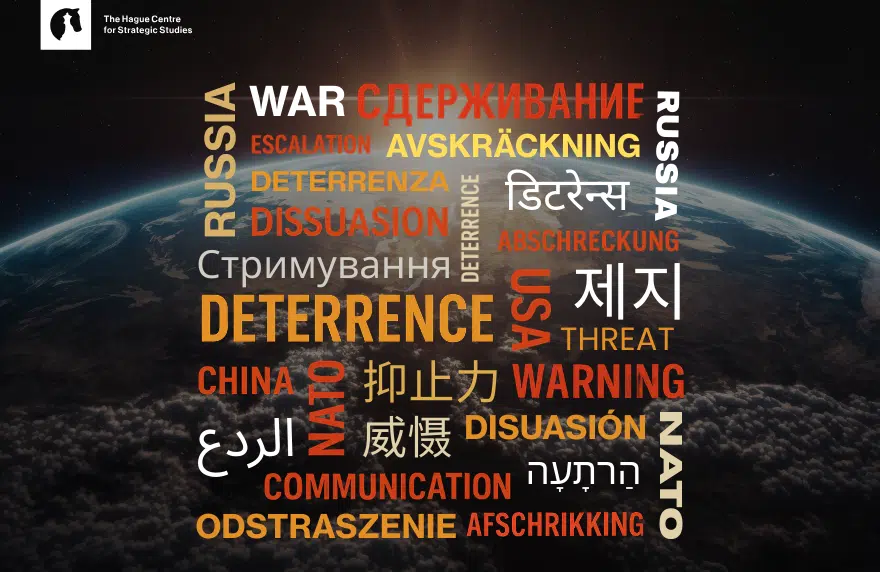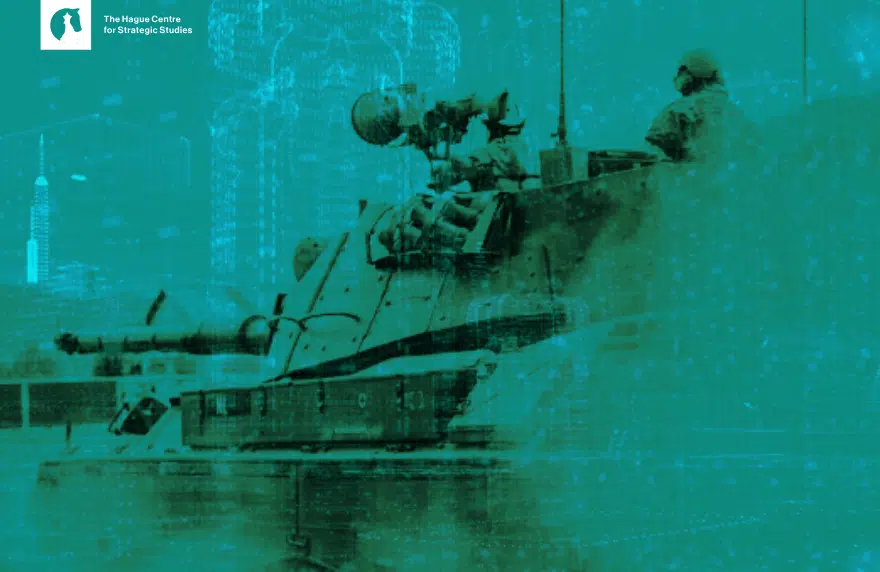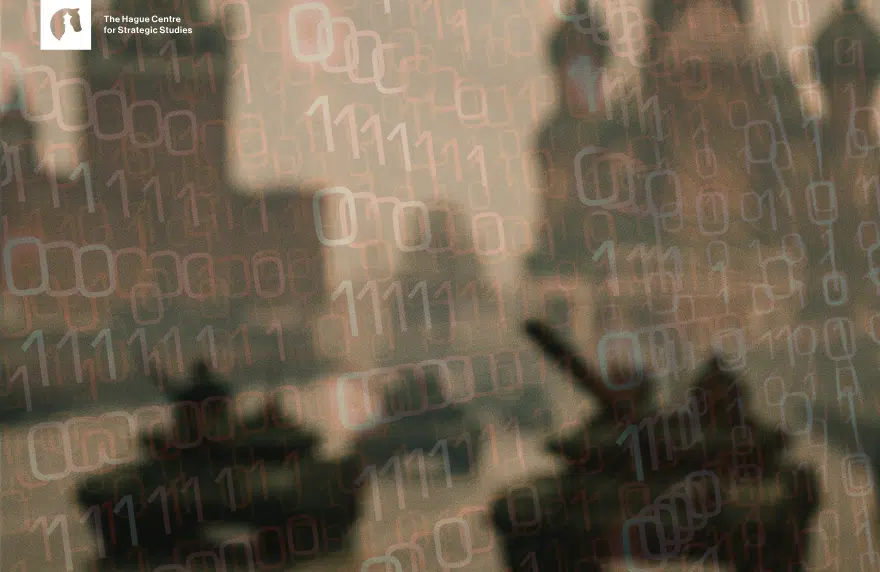A new report from Dutch thinktank The Hague Centre for Strategic Studies (HCSS) reveals how psychological and cognitive biases — not just intelligence gaps — blinded Western governments to Russia’s intentions ahead of the full-scale invasion of Ukraine in February 2022.
Titled Blinded by Bias, the report is based on 44 interviews with high-level officials at NATO Headquarters, and in France, Germany, the Netherlands, the United Kingdom, and the United States, including advisers to presidents, prime ministers and secretary-generals. It reveals how Western policymakers misread — or outright dismissed — repeated Russian warnings and signals of an impending invasion. The result: delayed responses, strategic inertia, and insufficient support to Ukraine when it mattered most.
“Russia didn’t hide its intentions,” said lead author and HCSS research director Tim Sweijs. “The West just couldn’t — or wouldn’t — believe them.”
The report identifies seven key biases that distorted threat perception in the run-up to the war, including:
- Availability Heuristic – policymakers couldn’t imagine large-scale war in Europe because they hadn’t experienced it in recent history.
- Cognitive Dissonance – acknowledging the threat would have required rejecting core beliefs in diplomacy and economic interdependence.
- Mirror Imaging – assuming Russia would act rationally by Western standards.
- Poliheuristic Bias – political leaders avoided high-cost options (like military support) due to domestic concerns.
- Representativeness Heuristic – expectations were based on past limited Russian incursions, not full-scale war.
- Groupthink – internal pressure suppressed dissenting views and alternative scenarios.
- Self-Deterrence – fear of provoking Russia inhibited stronger action.
Despite months of intelligence warnings, only a few NATO states — such as the UK, US and Eastern European allies — took the threat seriously early on. Most Western European capitals, including Berlin, Paris and The Hague, underestimated Putin’s intentions, overestimated the effectiveness of diplomacy, and failed to prepare for the worst-case scenario.
The study introduces a novel typology of NATO responses before the invasion, categorising member states as Doves, Deers, Buzzards, or Wolves based on their perception of the Russian threat and their level of support to Ukraine.
“Understanding why policymakers didn’t act is more important than simply stating that they didn’t,” says Sweijs. “This wasn’t just a failure of intelligence — it was a failure of imagination.”
With geopolitical crises multiplying across the globe, Blinded by Bias calls for urgent institutional reforms, including bias-awareness training, red-teaming, and operational frameworks that force leaders to think like adversaries — not mirror them.
Read the full report by Tim Sweijs, Thijs van Aken, Julie Ebrard, Philippe van Pappelendam and Anna Hoefnagels now!








